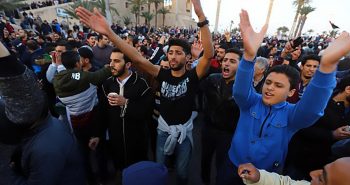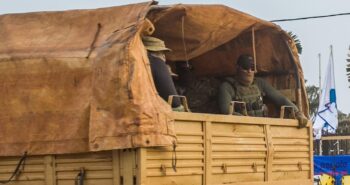By Cristina Martin Ristori
The expansion of armed conflict into southwestern Libya has strengthened a faction that may drive support toward Salafi-jihadi groups.
The Libyan National Army (LNA) gained significantly around its eastern Libyan bases and is now expanding to the west and the south.
Its commander, Field Marshal Khalifa Haftar, is a polarizing figure leading an effort to eradicate political Islam (not just Salafi-jihadi groups) in Libya.
He has built a loosely-knit alliance in the southern Fezzan region through tribal negotiations and force.
An anti-Haftar counterattack halted the LNA’s gains in the Fezzan.
Haftar’s opponents include militias from the western city of Misrata, Islamist militias aligned with the Muslim Brotherhood, al Qaeda-linked groups, and forces affiliated with the defense ministry of the UN-backed Government of National Accord (GNA).
Tribal leaders and local officials have led mediation efforts, but key military and oil sites remain contested.
Haftar agreed on the need to establish a ceasefire in the Fezzan during a breakthrough meeting with GNA Prime Minister-designate Fayez al Serraj on May 2.
He is unlikely to relinquish his strategic interests in the region even as he seeks legitimacy through the UN-backed political process, however.
The LNA continues its assault on contested airbases and oil infrastructure despite ongoing negotiations.
The LNA’s escalation in the Fezzan incentivizes its opponents to support al Qaeda-linked groups, who are spearheading the fight on this new front.
Neither the LNA nor its opponents are likely to win outright in the Fezzan, where their ongoing conflict upsets a complex web of rivalries and alliances.
Continued instability in the Fezzan may derail local mediation efforts and spark escalation against the LNA from previously GNA-aligned forces.
***
Cristina Martin Ristori – Libya Research Intern at American Enterprise Institute
______________________




